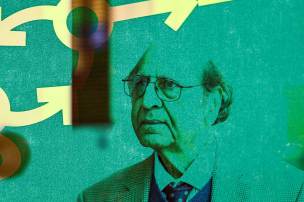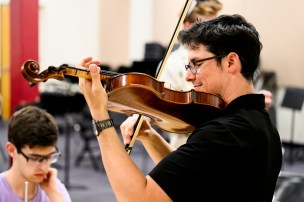Published on
Refusing to be marginalized, Elyse Cherry became an LGBTQ+ trailblazer
Northeastern law school grad Elyse Cherry: “In my adult lifetime we’ve gone from living under threat of being fired, being a criminal because of being an LGBTQ+ person to having same-sex marriage and a public life.”
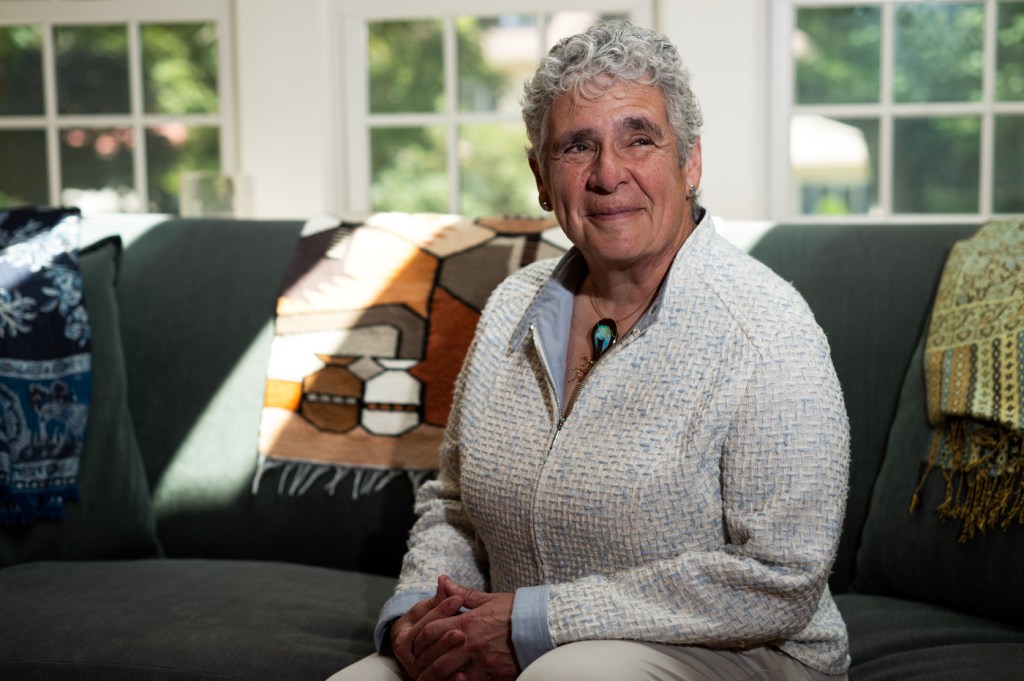
Elyse Cherry looks at her life and career as a seamless web that sort of wove itself.
But if you look closer, you will find that it was spun out of curiosity, determination, a resolute sense of self and hard work, all bonded together by strong personal values.
“You just get up really early, and you work really hard,” Cherry says. “Some things you get paid for, and some things you don’t. And by the end of the day, you’ve got it all done.”
Cherry’s poise and determination became apparent even before she gave a student commencement speech at her graduation from Northeastern School of Law in 1983. In that speech, she talked about trying to build the world she wanted and about equity being a given and not a goal.
However, the most progressive view on homosexuality she heard in law school was that it was a victimless crime.
“It wasn’t progressive enough for me,” she says.
Cherry challenged a criminal law professor who made that comment in class by standing up and stating that she was not a criminal and she didn’t want people to be taught that she was.
In return, the professor offered Cherry the opportunity to teach on this topic.
Cherry and three other openly gay students—the late Urvashi Vaid, prominent LGBTQ+ rights activist and leader of the National Gay and Lesbian Task Force; Richard Burns, former executive director of the LGBT Center in New York City and the board chair for the American LGBTQ+ Museum; and Kevin Cathcart, former executive director of Lambda Legal and board member of National Immigration Law Center—devised a series of presentations about queer people and the law. They advocated with the faculty to incorporate lesbian and gay lives and cases into the law school curriculum.
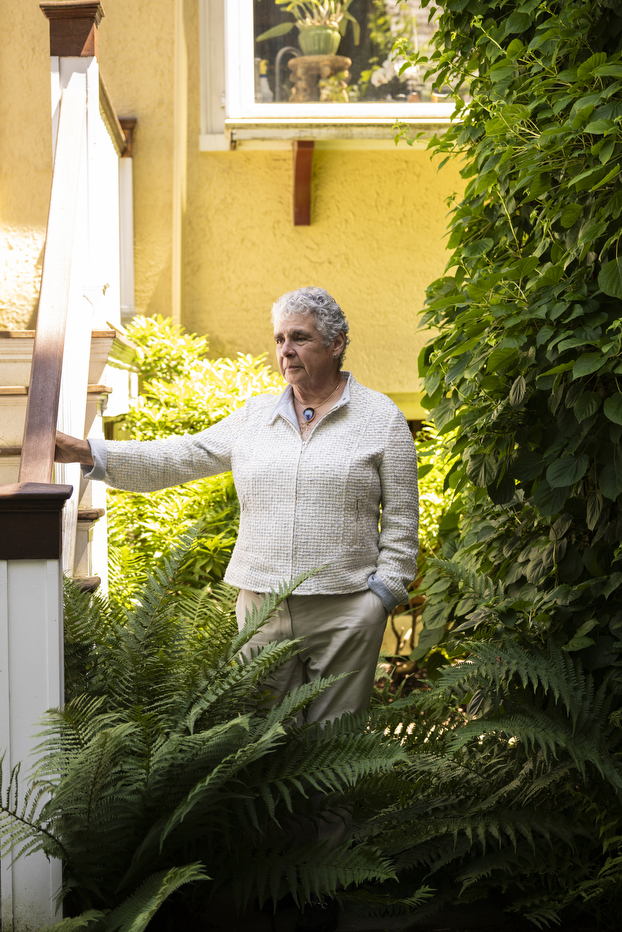
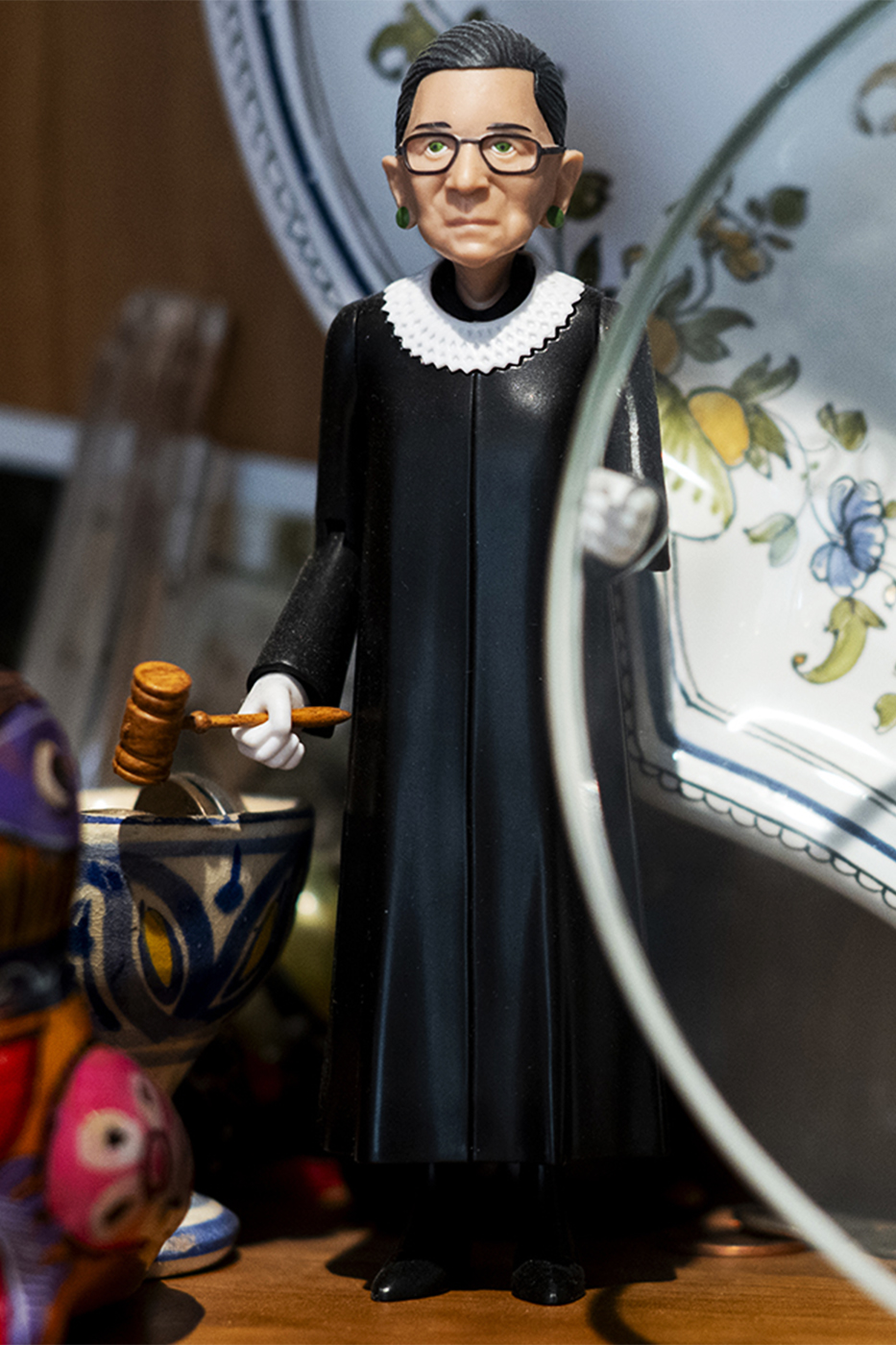
“One thing about Elyse that was very evident right from the beginning of our first year in law school was the thoughtful way that she answered questions and made statements in our classes,” Burns says.
Cherry was low-key, but eloquent, charming and direct, he says, and brought good humor to serious subjects.
“Ultimately, some of us created an independent course—lesbian and gay people in the law,” Burns says.
Holding herself to the ideas she talked about in her law school commencement speech, Cherry went on to become a successful lawyer, dedicated civic and business leader, ardent supporter of the women’s rights movement, agent of change for the LGBTQ+ community, and advocate for affordable housing and community development.
As the chief executive officer of BlueHub Capital, a nonprofit community development financing organization, she has been named one of 50 most influential Bostonians by the Boston Business Journal, one of the Top 100 LGBT executives in the world by the Financial Times and OUTstanding, and one of 21 leaders for the 21st Century by Women’s eNews. Most recently, the Boston Business Journal selected Cherry for the Business of Pride Trailblazer Award.
“Wherever she goes, she brings her commitment to justice in a way that people, including people in business, banking and government, are able to hear and join. That’s as essential as it is unusual,” says Mary Bonauto, class of 1987, a prominent civil rights lawyer and senior director of civil rights and legal strategies at GLBTQ Legal Advocates & Defenders.
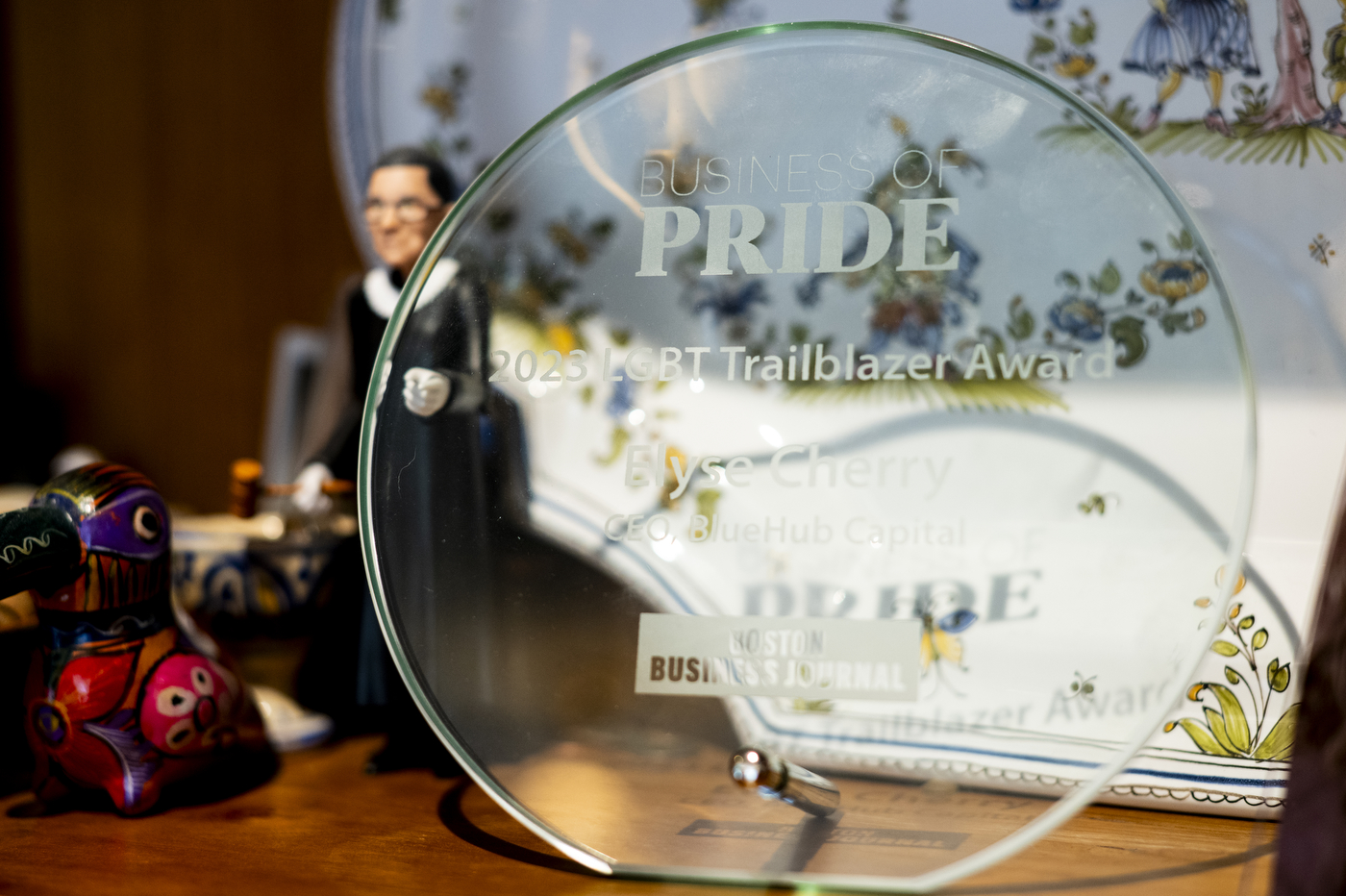

Cherry grew up in a family of five in Revere, one of the gateway cities adjacent to Boston. Her father taught high school and her mother was a homemaker. The area was poor, she says, and overrun by feral cats but people in the community always took care of each other.
After attending Wellesley College where she focused on political science, Cherry joined the Volunteers in Service to America program and went to Knoxville, Tennessee. She participated in a number of projects there aimed at spurring economic development, improving education and providing access to clean water.
It was an enormous learning experience, Cherry says, as she was immersed into the unfamiliar to her cultures of the American South. However, she realized that direct service to communities was not enough for her.
“I found it frustrating how little one could actually do on the ground,” Cherry says. “And [became] more interested in moving to a policy or an enforcement posture.”
After returning to Boston, Cherry worked for the National Labor Relations Board, which exposed her to more new groups of people.
“It really was a great way to experience both all of our common humanity but, at the same time, to understand that people could legitimately get two very different perspectives on life based on their own experiences,” she says.
Around that time, Cherry came out as a lesbian. Official government policy at that point was that agencies were supposed to root out their homosexual staff members and fire them, she says, so she could not be openly gay at her job.
“I did not want to give up the idea of living a values-based life (and I never have) nor did I want to be relegated to the sidelines, be marginalized,” Cherry says. “I wanted to learn what was required to be in the belly of the beast, to really understand how power worked, how money worked, how capital markets worked, how our society worked.”
One way to do that was to become a lawyer. Cherry says she chose Northeastern School of Law because it was known for its values, welcoming to women and tolerant to sexual minorities.
However, in reality, there were not more than half-a-dozen openly gay people in their class of about 135 students, Burns says. This was indicative of the pressure queer people experienced 40 years ago that made them stay in the closet. Those who wanted to enter the legal profession, he says, had to keep in mind that they could be refused admittance to the bar for being an openly gay person.
“It required a certain amount of integrity and bullheadedness on the part of all of us to say ‘This is who we are,’” Burns says.
Cherry went on to work as an attorney in a big Boston law firm, where she focused on multi-family and commercial real estate finance and development. She also did a lot of pro bono work related to affordable housing and open-space preservation. She had to keep her professional and private life separate again, which basically meant going back into the closet, she says.
After becoming a partner in the firm, she became interested in moving from the legal profession to the business side and accepted a position at an insurance group of companies in 1992.
By that time, she says she was openly gay and the feeling in the community reached the point of “enough already.” Cherry joined the board of GLBTQ Legal Advocates & Defenders.
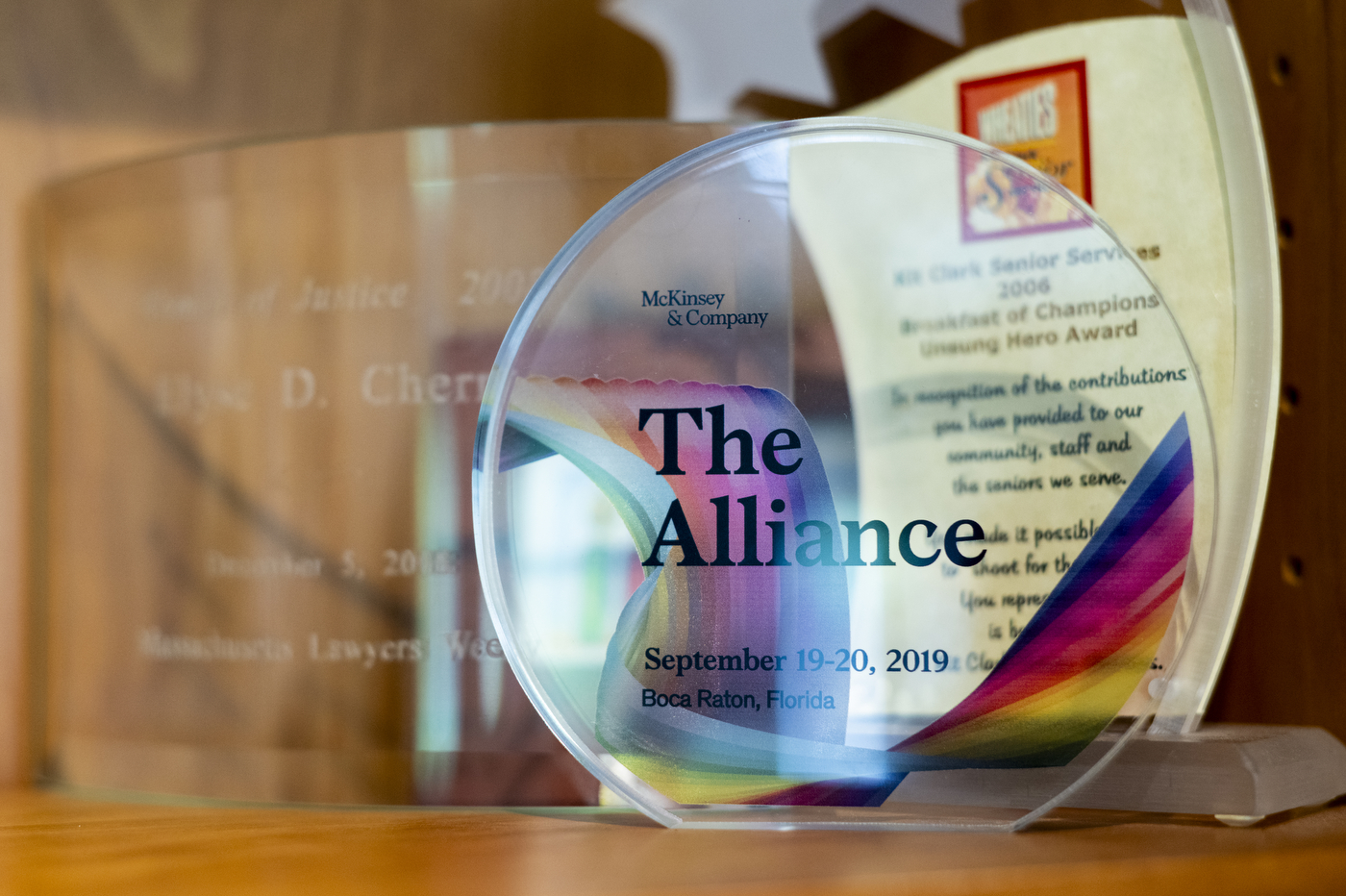
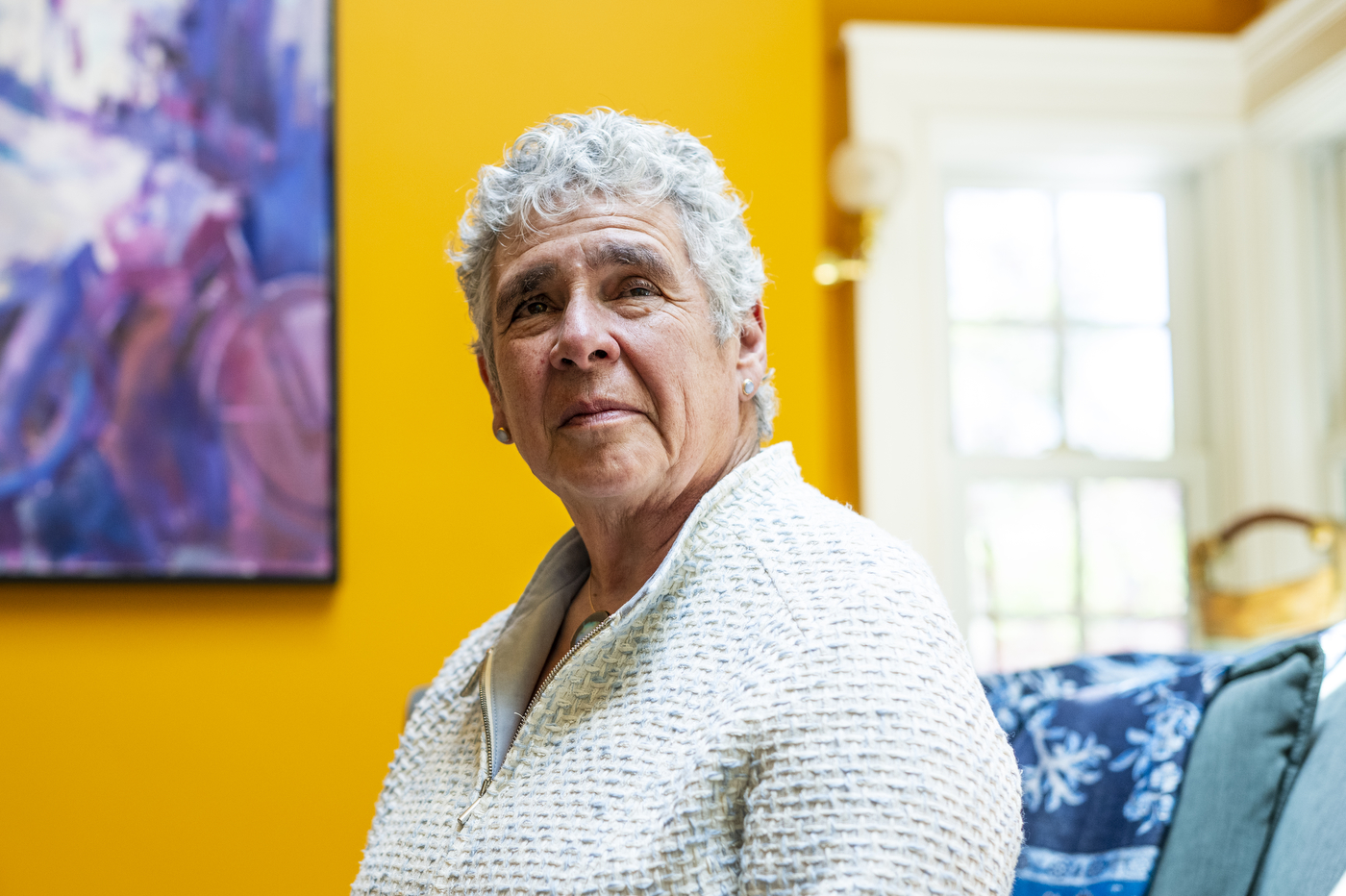
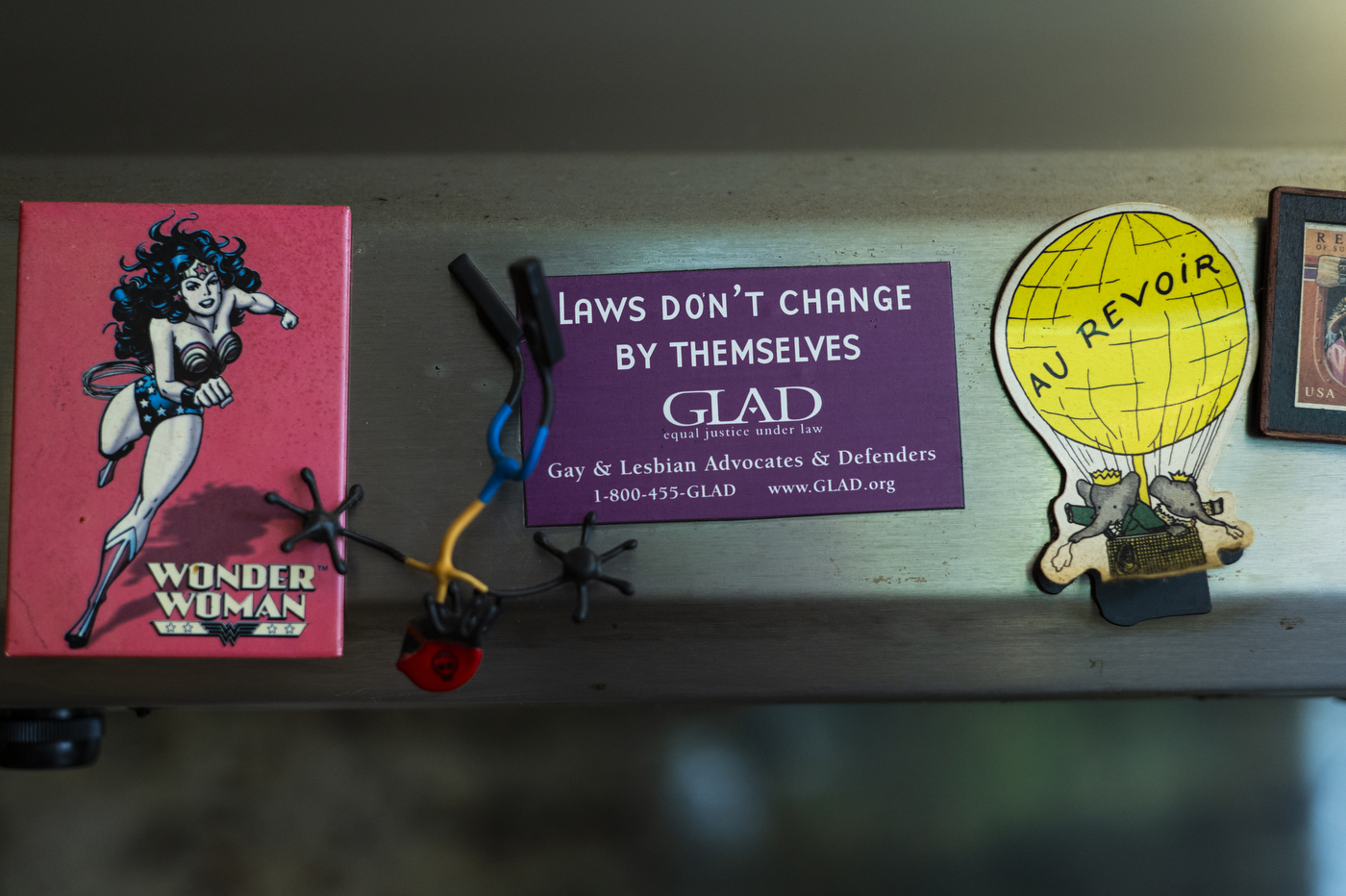
“She helped move GLAD from a tiny organization to a stable and consistent force for justice in state and federal courts, in statehouses and the Congress, and in diverse communities all over New England,” says Bonauto, who successfully argued before the U.S. Supreme Court in the historic case Obergefell v. Hodges, which established the freedom for same-sex couples to marry nationwide in 2015.
Cherry has been “a rock” for GLAD, Bonauto says, helping the organization in winning a Supreme Court ruling on HIV and nondiscrimination in the 1990s; leading the organization’s board to make Massachusetts the first state to legalize marriage for same-sex couples in 2003; and nurturing and growing GLAD’s work for transgender, nonbinary and queer people from the 1990s forward.
“She’s always open to listening, is always thinking, and pushes herself outside of her comfort zone regularly to consider new perspectives,” Bonauto says. “She can help people find alignment and shared strategies that elude others. With her strategic insights and as a connector in the many worlds in which she travels, she is a too-often unacknowledged force for justice in our commonwealth and beyond.”
Around 1985 a group of Cherry’s friends came up with an idea to create a nonprofit—Boston Community Loan Fund—to finance development of communities where low-income people lived and worked. They invited her to join them in this endeavor.
At the time, community-development financial institutions were just beginning to emerge.
“The idea really was that if you could aggregate capital and aggregate expertise, then maybe you could create community based real estate undertakings that had a chance of succeeding,” she says.
Boston Community Loan Fund started with $3,500.The fund later raised money from individuals, foundations and religious organizations. Cherry jokes that nuns were lending them their breakfast money and they had an enormous obligation not to lose it.
And they never did. The fund weathered a tremendous downturn in the 1990s, because they saw a recession coming, put together a market conditions committee and adjusted the lending strategy accordingly.
Wherever she goes, she brings her commitment to justice in a way that people, including people in business, banking and government, are able to hear and join.
Mary Bonauto, class of 1987, a prominent civil rights lawyer and senior director of civil rights and legal strategies at GLBTQ Legal Advocates & Defenders
Cherry eventually joined Boston Community Loan Fund as a full-time employee and became its chief executive officer in 1997. Since then the organization went national, changing its name to BlueHub Capital. It invested $2.6 billion in projects from Boston to Los Angeles, currently operating in 39 states and Washington, DC.
Cherry and her team are constantly thinking about the kinds of products and services they can provide to their clients, she says. BlueHub Capital currently has six different lines of business ranging from foreclosure relief to solar projects in low-income communities to 1% for America—a new loan program for legal immigrants helping them pay the fees for naturalization applications.
Cherry says anyone can be an activist. The gamut runs from street protesters throwing rocks over the wall to those who earn a seat at the table and use their power to continue social conversation and change policies.
“I hope the folks who become activists have good values,” she says.
She believes the new generations of LGBTQ+ activists are doing what they need to be doing.
“Every generation finds its mission, and the mission of this emerging generation seems to be about shifting ideas around gender,” Cherry says, noting that her role is to create space for the “new kids” and allow them to continue working in that direction.
In her opinion, America today is experiencing a backlash, but is not moving backwards on LGBTQ+ issues.
“In my adult lifetime we’ve gone from living under threat of being fired, being a criminal because of being an LGBTQ+ person to having same-sex marriage and a public life and a focus on bringing our authentic selves everywhere we go,” Cherry says. “It’s a gigantic shift.”
However, she believes activists should be careful and not let women be simply erased.
“We are at a place where women are still paid less and have had a harder time taking positions of leadership, either in the corporate world or in the political world,” she says.
After all, America has not had a woman president yet and pushing women’s rights is still very important.
Cherry is planning to continue leading BlueHub Capital for several more years, building out the next generation of leadership there.
“I continue my work in the various not-for-profit boards,” she says. “ [I am] continuing to travel, and continuing to bike, and to walk, and be embedded in my community. Life feels full and pretty terrific.”
Alena Kuzub is a Northeastern Global News reporter. Email her at a.kuzub@northeastern.edu. Follow her on Twitter @AlenaKuzub.


